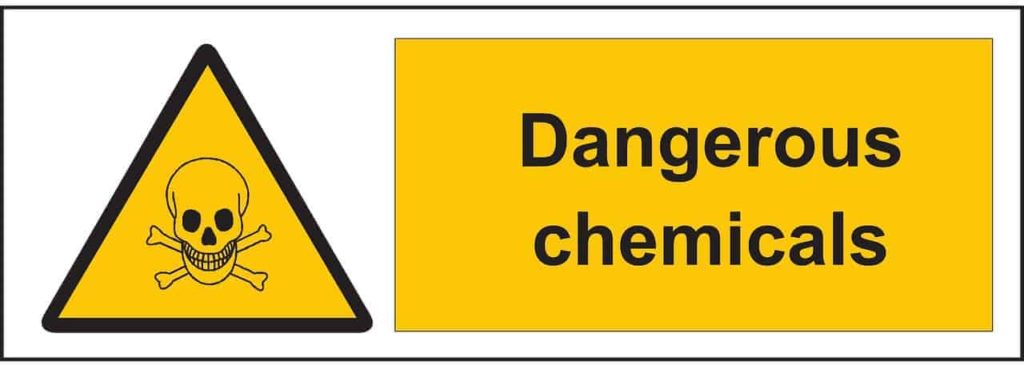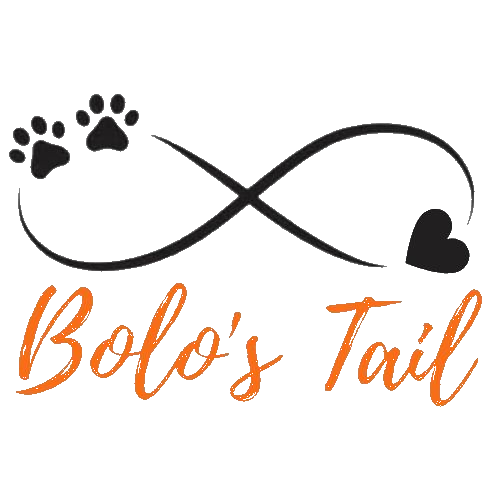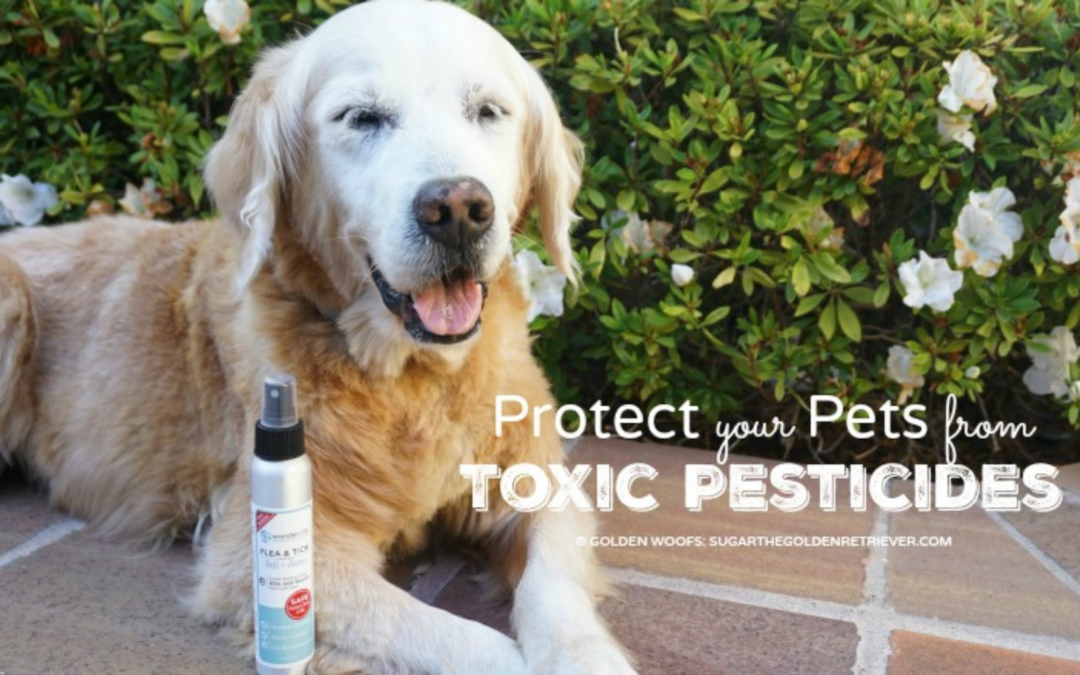In this day and age, we must be aware and mindful regarding the products we use in our homes and gardens. Our pets can be poisoned and have potentially fatal consequences from the use of such products, We as our pets’ caregivers, must take precautions to avoid such instances.. It would be naïve to think that their environment doesn’t play an important role in the onset of certain ailments that can have life-threatening effects on your beloved furry family member.
Most homes contain dangerous chemicals and caustic substances that may be toxic to dogs. As adults we know better than to come into contact with the most dangerous chemicals. However, just like parents must protect their children from household toxins, we must also protect our dogs.

Try to switch to products that are known to be safe for pets. Some chemicals can be harmful to dogs if they are ingested, inhaled, or make contact with skin. In some cases, chemicals can enter the bloodstream and affect the major organs. Certain chemicals that are considered safe for humans, can still harm dogs.
If you treat your yard with chemicals, be sure your dog does not have access to the yard until it is dry and fume-free. Keep your dog away from areas where liquid chemicals have been recently sprayed, and make sure that the chemical it is safe once dry. The same applies to floor cleaners, including for carpets, and cleansers used where your dog may walk. Be attentive of your dog’s location when spraying chemicals into the air or onto surfaces.
Learn about the safety of products before you purchase and use them. Try to use as many pet-safe products as possible. Keep dangerous toxic chemicals where your dog absolutely cannot find them, or have access to them.

Chemicals Poisonous to your Dog
- Drugs and medications: Prescription, over-the-counter, and illicit/recreational drugs can be very harmful to dogs. The toxic effects depend on the type of drug and quantity ingested. In some cases, toxicity can easily cause death.
- Bleach: This chemical is caustic to the skin, mucous membranes, and gastrointestinal tract. In addition, the fumes are potentially harmful, especially in closed spaces.
- Drain cleaner: This is also caustic to the skin, mucous membranes, and gastrointestinal tract. The fumes can be harmful, especially if the area is not well-ventilated.
- Fertilizer: Depending on the type, some fertilizers can irritate the skin and feet if your dog comes into contact with it, especially before it is dry. It can also be harmful if ingested.
- Glue: Many types of glue are dangerous, causing poisoning, skin and mucous membrane irritation, and gastrointestinal obstruction. Gorilla Glue, and the like, is perhaps one of the worst, often causing gastrointestinal obstruction.
- Herbicides: Like fertilizer, herbicides can cause irritation to your dog’s feet and skin if he walks through it, especially if it’s still wet. If ingested, your dog could experience toxic effects.
- Household cleaners and detergents: Depending on the chemical, these can be dangerous if ingested, inhaled, or if they come into contact with the skin.
- Mulch containing cocoa bean shells: This type of mulch is a tasty yet dangerous snack for dogs. The toxic effects are the same as chocolate poisoning.
- Nail polish/nail polish remover (acetone): This is caustic to the skin, mucous membranes, and gastrointestinal tract. The fumes are potentially harmful. Also, nail polish can become glued to the hair.
- Paint, varnish, lacquers, sealants, stains: All of these are caustic to the skin, mucous membranes, and gastrointestinal tract. The fumes are potentially harmful. Some of these may also dry on fur and can be difficult to remove.
- Paint thinners and paintbrush cleaners (mineral spirits, turpentine, etc.): All of these are caustic to the skin, mucous membranes, and gastrointestinal tract. The fumes are potentially harmful.
- Pesticides: When wet, many types of pesticides can irritate the skin, mucous membranes, and GI tract. Some are still harmful when dry.
- Rat Poison: Sadly, rodenticide toxicity is a common poison in dogs. Rat poison is extremely toxic if ingested. NEVER use rat poison in or around your home.
- Salts (specifically rock salt/sidewalk salt) and other de-icers: These can irritate the skin and feet of dogs. They are also potentially harmful if ingested.
- Antifreeze: Ethylene glycol is a toxic chemical in antifreeze. Sadly, this is a common poison in dogs. Antifreeze tastes good to dogs, but even very small amounts are highly toxic. Symptoms of ethylene glycol poisoning appear rapidly and can quickly lead to death.
- Formaldehyde: Formaldehyde is present in many new home furnishings, household cleaners and some construction materials. It is considered toxic if inhaled or absorbed through the skin.
- Battery acid: This very dangerous chemical can irritate, ulcerate, or even eat through the skin, mucous membranes, and gastrointestinal tract.
- Kerosene: This is caustic to the skin, mucous membranes, and gastrointestinal tract. The fumes are potentially harmful.
- Motor oil: It is very harmful to the skin and dangerous if ingested. Motor oil can easily kill a dog.
What To Do If Your Dog Is Poisoned
If your dog is exposed to a toxin, you must ACT IMMEDIATELY! Call your veterinarian right away. Do not wait for symptoms to appear – DO NOT HESITATE!
Unless you’ve had previous experienced, or have been directed to do so by a veterinary professional, do not induce vomiting as caustic substances can be even more harmful coming back up than they were going down. Some of these include giving diluting hydrogen peroxide, salt water, or Ipecac, etc. Always consult a veterinarian before attempting these measures. Try to identify the toxin, and bring with you to the vet if possible.
In case of toxin exposure, it’s important to have an important phone number list ready beforehand. Make sure the list is visible in easily accessible location. Be sure pet sitters and other people who might be in your home are aware of the location of the list.
- Your primary veterinarian
- One or more nearby 24-hour veterinary emergency clinics
- Pet Poison Hotline: 855-764-7661 (fee applies)
- An emergency contact number for you and your dog
If you suspect your pet is sick, call your vet immediately. For health-related questions, always consult your veterinarian, as they have examined your pet, know the pet’s health history, and can make the best recommendations for your pet.
~ Watch this space for natural alternatives to toxic pet products!


Recent Comments